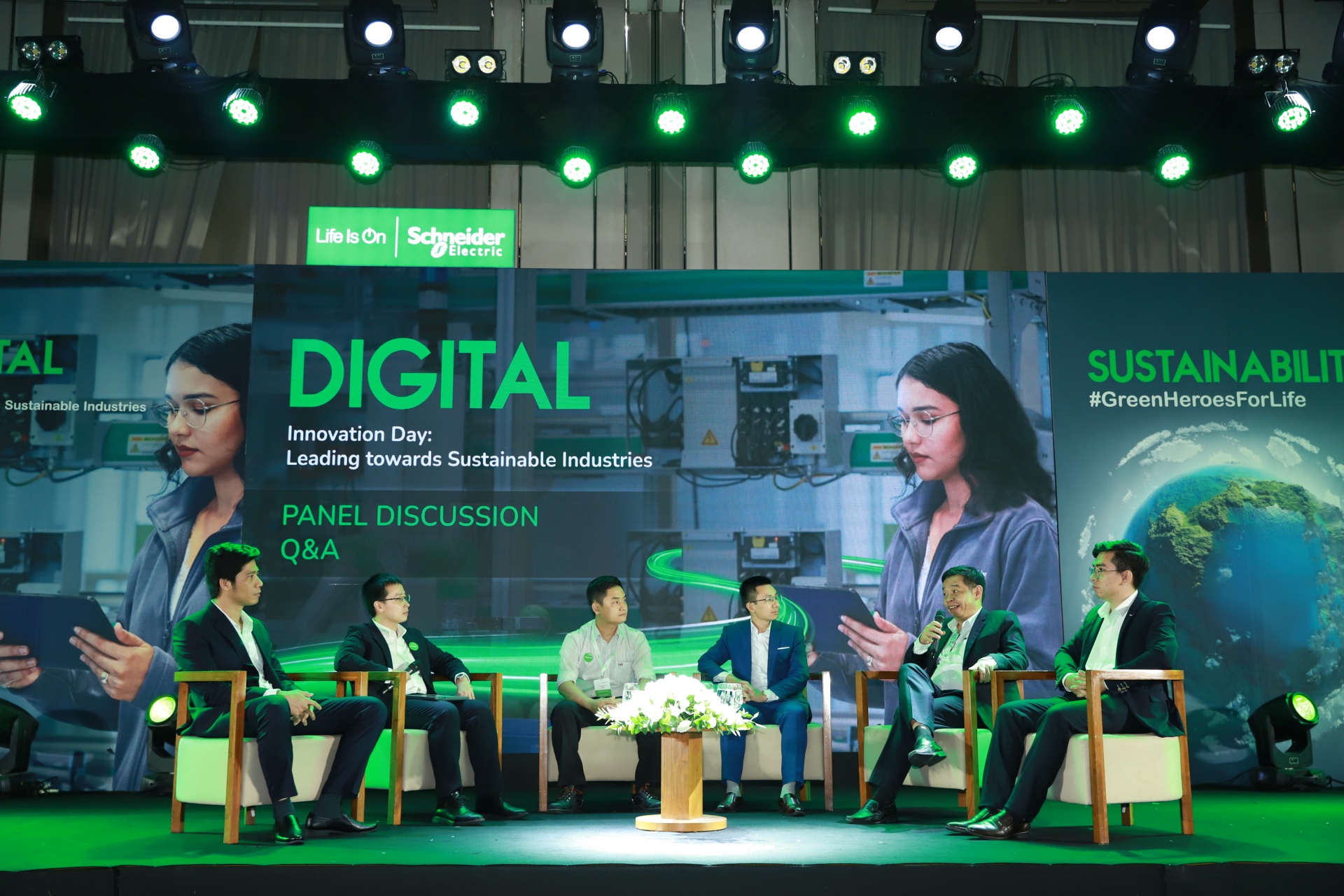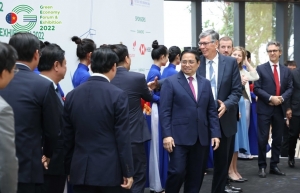Schneider Electric unveils next-generation industrial technology
 |
During the discussions, the firm introduced next-generation industrial technology geared towards sustainable industry, integration, and circularity, helping enterprises achieve their parallel goals of sustainable development and profitable growth.
According to the Schneider Electric Sustainability Research Institute, 40 per cent of the total carbon emissions are still generated by industry, 73 per cent of greenhouse gas production originates from energy usage, and 5-7 per cent of the energy needs are accounted for by water and wastewater.
To prevent the impacts of climate change, the Vietnamese government has introduced sustainable development policies, with green growth being one of its key pillars to achieve net-zero carbon emission by 2050. As the nation's industrial enterprises are transforming to follow more sustainable business models, there is an opportunity to reduce carbon emission across a wide range of sectors.
At Schneider Electric, the vision is to make the industries of the future sustainable and resilient through open, software-centric automation. Businesses in Vietnam can benefit from Schneider Electric’s top-of-the-line automation solutions to manage energy while delivering productivity and sustainability to overcome climate change and the energy crises.
Dong Mai Lam, cluster president of Schneider Electric Vietnam and Cambodia said, "To achieve net-zero by 2050, we must integrate sustainability, circularity, quality of life, and responsible profitability into every step of industrial decision-making. There is a need to transform for the next generation, utilizing digital solutions to empower the workforce, advance society, enhance wellbeing, and sustainably deliver economic growth."
"In order to truly reach next-generation levels of efficiency, resiliency and sustainability, our answer involves integrating energy and automation, using digital solutions and the Internet of Things from end point to the cloud, following the entire lifecycle via digital twins, and embracing integrated company management and supply chains," Lam continued.
According to Lam, there are three key pillars to build the industries of the future:
Firstly, software-centric automation is key to bringing vision to life. One of the trends of this is the metaverse in the industrial space. This is a virtual, real-time environment, where users can visualise, analyse, simulate, and predict the future. This gives industrial enterprises the insights they need to engineer smarter, operate better, and act with agility and efficiency.
The next pillar is the industrial sustainability triad of software, automation, and energy. This is considered the recipe for the sustainability of industries in Vietnam. The enterprises of the future require a digital way of thinking – where software and data play starring roles to improve the visibility and management of resource usage, lower operating costs, and improve industrial firms' sustainability outlook.
The third is universal automation – the next quantum leap in industrial automation. Universal automation with the new IEC 61499 standard offers unprecedented flexibility, interoperability, and efficiency compared to the current standard IEC 61131, allowing automation systems to take advantage of IT technologies.
EcoStruxure Automation Expert is an innovative approach to managing the complete lifecycle of the industrial automation system. It is the foundation for the next industrial revolution with the digitalisation of production processes, allowing businesses to scale and be more flexible, which in turn improves competitiveness.
In addition, EcoStruxure Automation Expert introduces operational agility, allowing integration with clients' data management systems to provide real-time information at the machine or assembly-line level. Such integration ensures optimal capacity and reduces waste throughout the manufacturing plant.
At Innovation Day 2023, Schneider Electric Vietnam introduced comprehensive solutions including EcoStruxure Machine Expert, EcoStruxure Machine, EcoStruxure IT Advisor, and AVEVA Insight to ensure efficient and seamless digital transformation while improving energy use and reducing waste, all helping industrial enterprises to realise their goals of sustainable development and profitable growth.
 | European corporations take part in growing Vietnam's green economy Regional business executives of leading European corporations in various sectors met with Prime Minister Pham Minh Chinh at the Green Economy Forum and Exhibition (GEFE) 2022 on November 28 in Ho Chi Minh City. |
What the stars mean:
★ Poor ★ ★ Promising ★★★ Good ★★★★ Very good ★★★★★ Exceptional
 Tag:
Tag:
Related Contents
Latest News
More News
- Agro-forestry and fisheries exports jump nearly 30 per cent in January (February 09, 2026 | 17:45)
- Canada trade minister to visit Vietnam and Singapore (February 09, 2026 | 17:37)
- New tax incentives to benefit startups and SMEs (February 09, 2026 | 17:27)
- Vietnam forest protection initiative launched (February 07, 2026 | 09:00)
- China buys $1.5bn of Vietnam farm produce in early 2026 (February 06, 2026 | 20:00)
- Vietnam-South Africa strategic partnership boosts business links (February 06, 2026 | 13:28)
- Mondelez Kinh Do renews the spirit of togetherness (February 06, 2026 | 09:35)
- Seafood exports rise in January (February 05, 2026 | 17:31)
- Accelerating digitalisation of air traffic services in Vietnam (February 05, 2026 | 17:30)
- Ekko raises $4.2 million to improve employee retention and financial wellbeing (February 05, 2026 | 17:28)






















 Mobile Version
Mobile Version